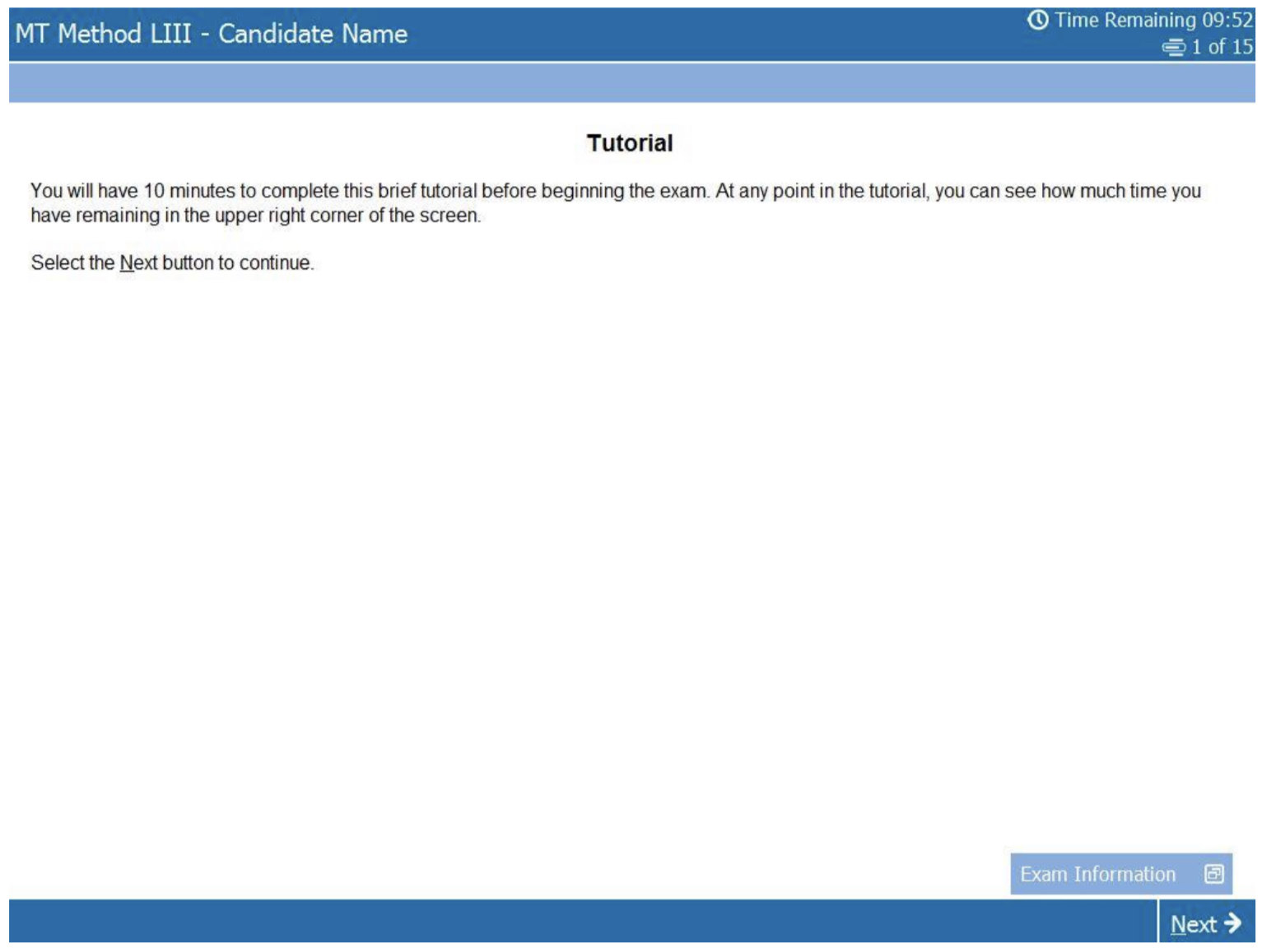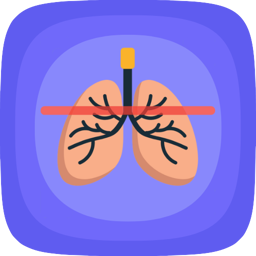MSRA Overview
The Multi Specialty Recruitment Assessment (MSRA) is a key obstacle to overcome if you want to progress in your Radiology application. Used solely to determine cutoff for interview invites, ace this and you'll massively boost your chances of success.
What is the MSRA?
The Multi Specialty Recruitment Assessment (MSRA) is a funny old thing. Initially used for recruitment to general practice, its use has now become almost ubiquitous across all other specialities except medical and surgical training (General Practice, Psychiatry, Radiology, ACCS, Anaesthetics, Ophthalmology, Obstetrics and Gynaecology, Community and Sexual Reproductive Health, and Neurosurgery). The exam is designed to test the essential competencies found in the person specification for each speciality, and any required knowledge will be at the level of a foundation doctor. It’s a computer-based assessment, taken at Pearson Vue centres found across the UK (yep, the same place you did your driving theory test). There is also a provision to sit the exam remotely if you are self-isolating or shielding and therefore cannot attend a test centre. Everyone who applies to Clinical Radiology has to sit the MSRA, with no exceptions.
Invitation & Booking
The MSRA is held in early January each year. In 2024, the window will be between 4-16 January. Everyone who meets the eligibility criteria will receive an email after you’ve completed your application form asking you to create a Pearson Vue account here. After doing this, a few days/weeks later you will get another email asking you to book your place. The exam is free to sit (as it should be, there’s no qualification at the end!) Once logged in, you can find your nearest test centre and book your time. The times are on a first-come, first-served basis, and naturally, all the latest slots usually get picked first. There is no real benefit to booking the latest slot, other than having a few more days to cram. If for any reason you can’t attend a test centre (another lockdown, you are shielding or have Covid-19), then they will make provisions for you to sit the exam remotely using their 'OnVUE' software. Your initial invite will still ask you to book a place at a Pearson Vue centre, but after you receive this you can apply for a remote assessment.
On the Day
You’ll be asked to arrive at least 15 minutes before your exam. You'll need to bring a standard form of ID. Once registered, you’ll be taken through to the examination room and can start your exam once you’ve signed the online declarations. There may be people in the room sitting completely different exams, so try not to be distracted by all the comings and goings. They helpfully provide you with some earplugs and headphones (supposedly noise cancelling but that’s questionable), and a whiteboard with pens. You can’t take in any of your notes or equipment, and you can’t take water in. The computer programme looks a bit like this:
You can see the navigation buttons in the bottom right, and the time remaining in the top right, alongside how many questions are remaining. In the real exam, you’ll also have options to ‘flag’ questions for review, and access to an online calculator. Look at this document for a walkthrough of all the different functions of the Pearson Vue Software.
The Structure of the Exam
The exam lasts 170 minutes (unless you qualify for extra time). It comprises the following sections:
- ‘Professional Dilemmas (PD)' paper - 95 minutes for 50 questions (8 pilot questions, so only 42 questions count)
- ‘Clinical Problem Solving (CPS)' paper - 75 minutes for 97 questions (11 pilot questions, so only 86 questions count)
Both papers are timed independently, so if you complete the PD paper 10 minutes early, you can’t use that 10 minutes for the CPS paper, you’ll still only have the allocated 75 minutes. Therefore, don’t rush! There is a short break of 5 minutes if desired between the papers, but if your cup of tea takes longer than 5 minutes, your break time will start eating into your time on the CPS paper. Also, you won’t know which questions are real and which are ‘pilot’ questions that they are testing for next year, so make sure you answer all of them. Click here to view the official documentation about the content of the exam, which discusses the above in more detail.
Professional Dilemmas (PD) Paper
The PD paper is a situational judgement test, similar to that sat at the end of UK medical school. You will be presented with several challenging workplace-based scenarios (hospital and community) and expected to show your judgement about the most appropriate behaviour in that context. The scenarios will primarily assess your behaviour concerning organising your workload, and interactions with colleagues and patients. Ultimately, they want to know you have professional integrity, can cope with pressure and can show empathy. It does not require any specific clinical knowledge. Remember, all the scenarios in the PD paper will put you in the shoes of a foundation year 2 (FY2) doctor; even if you’re a registrar, you still need to answer the questions as if you were a foundation doctor. This can be quite difficult, as things you might do in your practice every day (such as consenting patients, breaking bad news etc) wouldn’t be done if you were an FY2, and therefore you need to adjust your answers accordingly. There are 2 formats of questions asked: ranking and multiple choice. Around half of the questions will be assigned to each format.
📊 Part 1 - Ranking
You have to judge the appropriateness of four or five actions and put them in order, i.e. ‘Rank in order the following actions in response to this situation (1= Most appropriate; 5= Least appropriate)’.
✅ Part 2 - Multiple Choice
You are asked to select the three most appropriate responses from a list of 7 or 8 actions.
Clinical Problem Solving (CPS) Paper
The Clinical Problem Solving (CPS) assesses your ability to apply clinical knowledge to make clinical decisions and is again based on the foundation year 2 curriculum. You will not be expected to have knowledge beyond that expected of an FY2 (but in practice, this is still quite a lot). To make it a fair assessment for all candidates regardless of your clinical experience, the paper tests you on diagnosis, investigation, management, prescribing and emergency situations across a range of specialities:
- Cardiovascular
- Dermatology / ENT / Eyes
- Endocrinology / Metabolic
- Gastroenterology / Nutrition
- Infectious Disease / Haematology / Immunology / Allergies / Genetics
- Musculoskeletal
- Paediatrics
- Pharmacology
- Psychiatry / Neurology
- Renal / Urology
- Reproductive
- Respiratory
Similar to the PD paper, there are 2 possible formats for the questions: extended matching and single best answer
📊 Part 1 - Extended Matching Questions (EMQs)
You will be presented with a common theme, of which there are 3 or 4 questions relating to that theme (i.e. eating disorders, surgical complications etc). You have to select answers to the questions from a list of 7-10 options, and each option can be selected once, more than once or not at all.
✅ Part 2 - Single Best Answers (SBAs)
You will select the single most appropriate answer from a list of 5-8 options, and each question will have a different theme.
Results & How It’s Scored
There is no negative marking, so answer every question. For the CPS paper, a correct answer gives you 1 mark. The PD paper is slightly more nuanced, and is graded on a ‘near miss approach’. Therefore if you don’t get the ranking questions in the exact right order, you won't score 0 points, it will be adjusted according to how far away you were from the ‘ideal’ response. For example, if the correct order of options was ABCDE and you put BACDE, you’d still get most of the points. Similarly for the multiple-choice scenarios, answers are marked by comparing your response to a pre-determined key and a score is given based on how close you were. MSRA results are published around the start of February (in 2023 this will be 'before the 17th of February'; last year it was the 4th of Feb for radiology). The final score is difficult to understand; there is no max score available, therefore it’s not expressed as "out of" a total score or as a percentage, but as a more arbitrary number. The way they score the exam for radiology applicants seems to be a close-kept secret, and it’s not clear if your score is compared to only radiology applicants sitting the MSRA, or candidates across all specialities. However, there is a way that you can get a sense of how well you’ve done by looking at the GP scoring guidance (most guidance related to the MSRA is specific to GP recruitment rather than radiology). In GP recruitment, the score is normalised around a mean score of ‘250’ per paper, so ‘500’ is considered roughly the mean overall. Bear in mind this is normalised dependent on the performance of the cohort sitting the exam that year, so there are some fluctuations in this. Each paper is also 'banded' between 1 and 4, with 1 representing an unsatisfactory standard. Even if you nail one paper and get max points, a band 1 score on the other paper means you will not progress any further in your application. For GPs, a score of less than 185 per paper is considered band 1 (very poor), 186-230 is band 2 (below average), 231-290 is band 3 (good) and anything over 290 is band 4 (very good). Double these scores to get your total mark for the paper and hopefully, this gives you an idea of how well you've done.
Interview Cut-Offs
The MSRA alone is used as a cut-off for an invitation to interview. If you do well enough, you’ll be invited; fall below the cut-off though, and no matter how good your portfolio is, your application stops here (pending reserve lists etc). For the 2021-2022 cycle, the cut-off was around 521 points, and for the 2022-2023 cycle this increased to 543! You can see how unjust this can be, as since the MSRA is used in the admission to most medical specialities, a lot of people will ‘throw their hat in the ring’ for radiology, even though they’re applying to GP and psychiatry. Suppose they happen to do well, they might get that all-important radiology interview over someone who has got 45/45 points on their portfolio but had a bad day on the morning of their exam. This was potentially even harsher in previous years, as those candidates who scored in the top 55 at MSRA bypassed the interview altogether, securing their radiology training number with just an exceptional knowledge of UTI management and whom to call if their consultant comes in drunk. Like it or not, the interview bypass for the top 55 candidates was scrapped for the 2021-2022 application year and doesn't look set to make a return this year, but whichever way you see it, the MSRA is super important.
References: - Health Education England | Medical Education Hub. (n.d.). Multi-Specialty Recruitment Assessment (MSRA) | Health Education England. [online] Available at: https://medical.hee.nhs.uk/medical-training-recruitment/medical-specialty-training/general-practice-gp/how-to-apply-for-gp-specialty-training/gp-specialty-training-recruitment/general-practice-msra [Accessed 13 Nov. 2022]. - Work Psychology Group | Test Blueprint & Information Multi-Specialty Recruitment Assessment (MSRA) (n.d.). [online] Available at: https://heeoe.hee.nhs.uk/sites/default/files/msra_test_blueprint_information_nov_2019.pdf.
GetIntoRadiology
Copyright © 2022 GetIntoRadiology.co.uk. All rights reserved.

